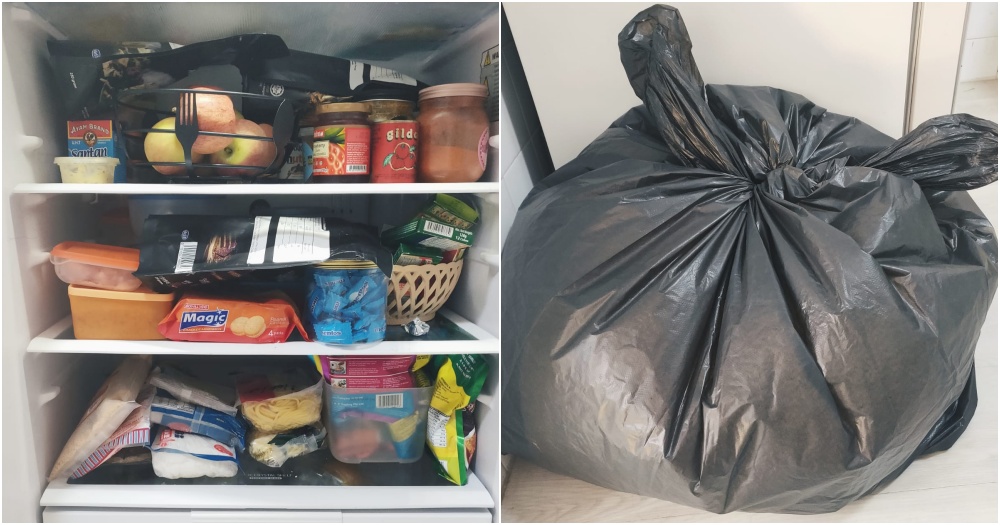Three people. One house. And lots of food.
I mean, take a look inside our fridge:
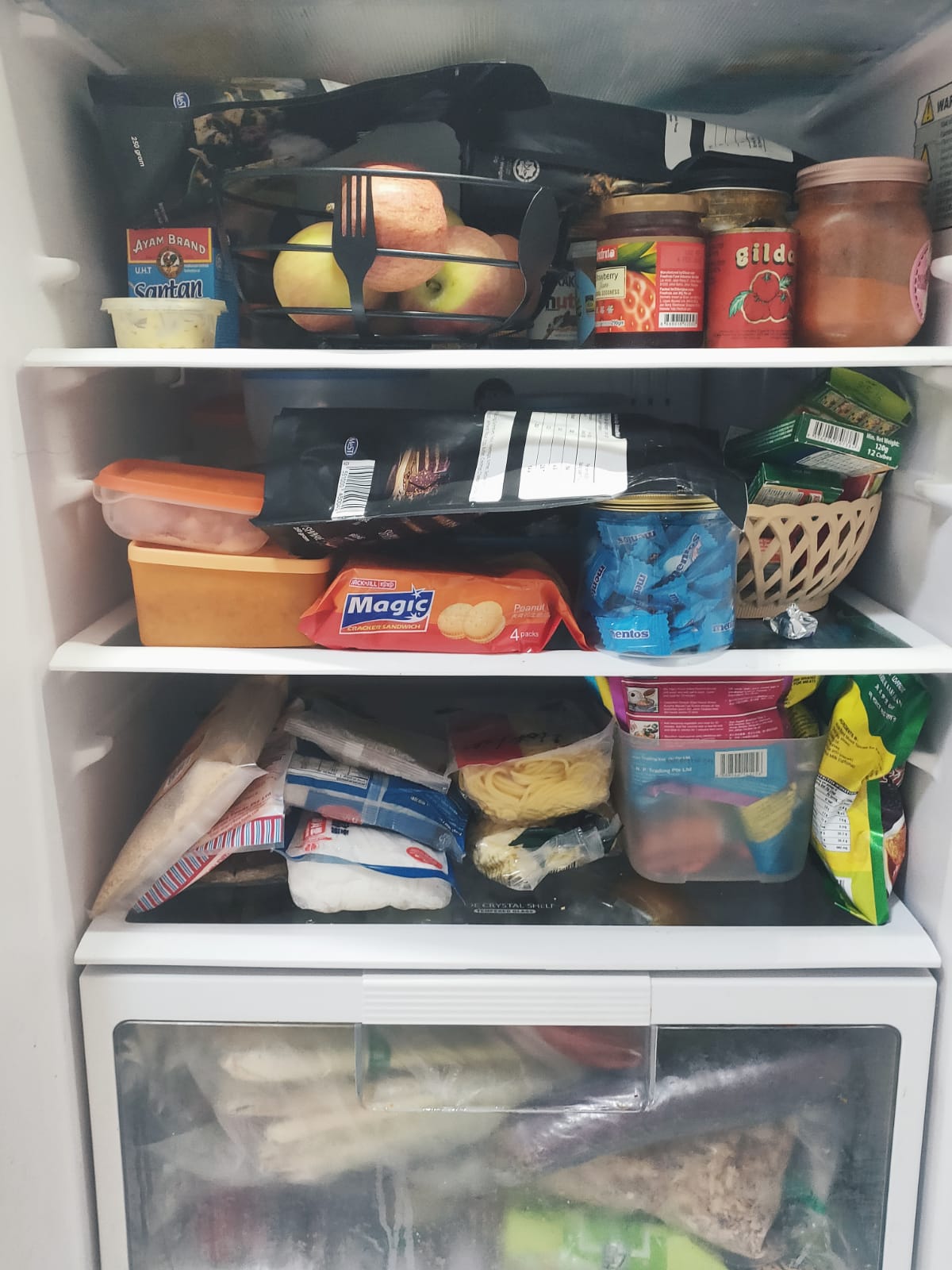 Literally full. Photo by Syahindah Ishak.
Literally full. Photo by Syahindah Ishak.
Too much food can lead to too much food wastage
This bad habit of buying too much food has led to an undesired outcome: Too much food waste.
For instance, I find myself throwing away a concerning number of expired food items these days.
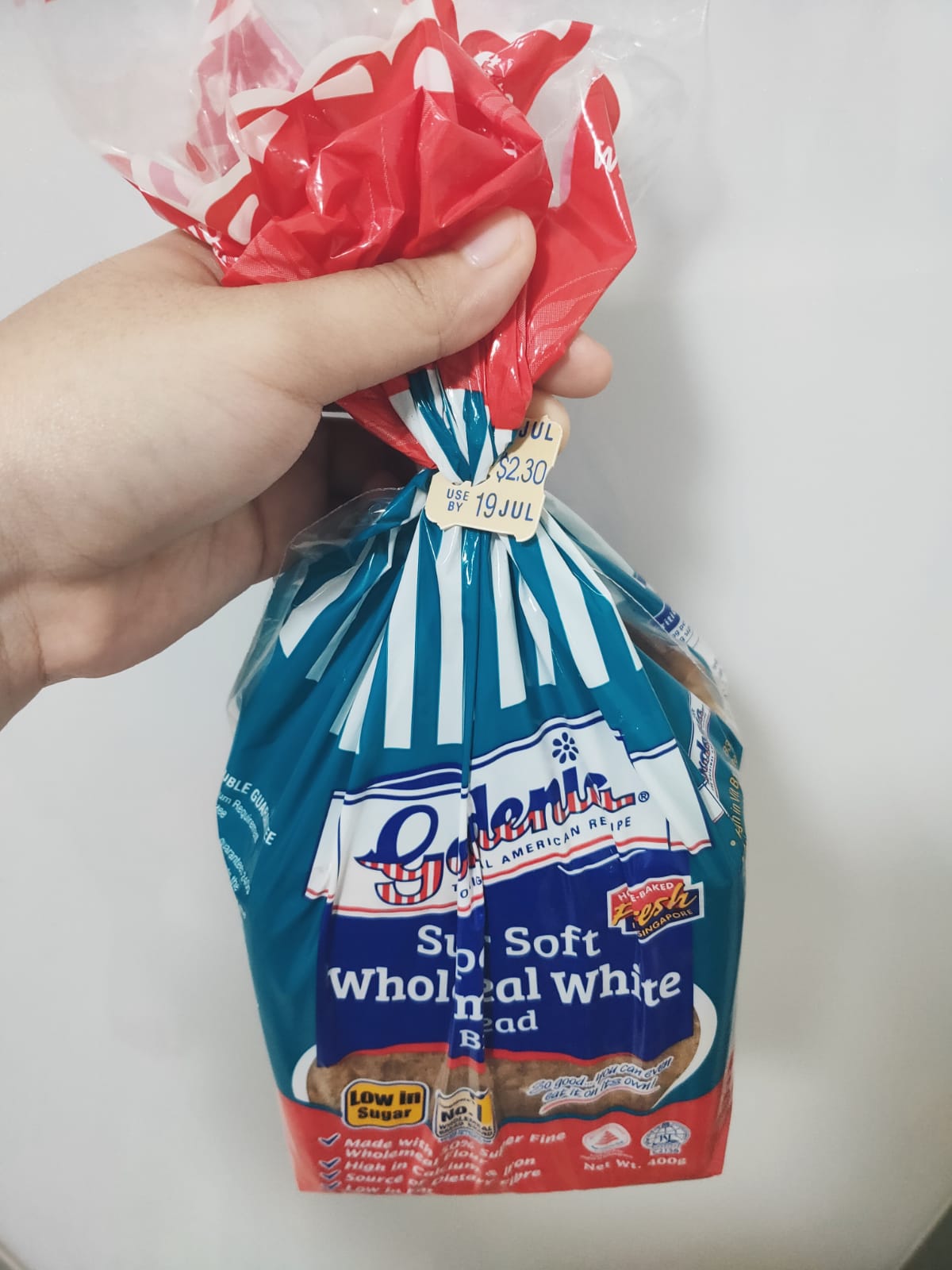 Expiry date: July 19. Photo taken on July 21. Still a lot of bread left.
Expiry date: July 19. Photo taken on July 21. Still a lot of bread left.
Photo by Syahindah Ishak.
And when I take the trash out, I can’t help but notice that the trash bag gets heavier and heavier each day.
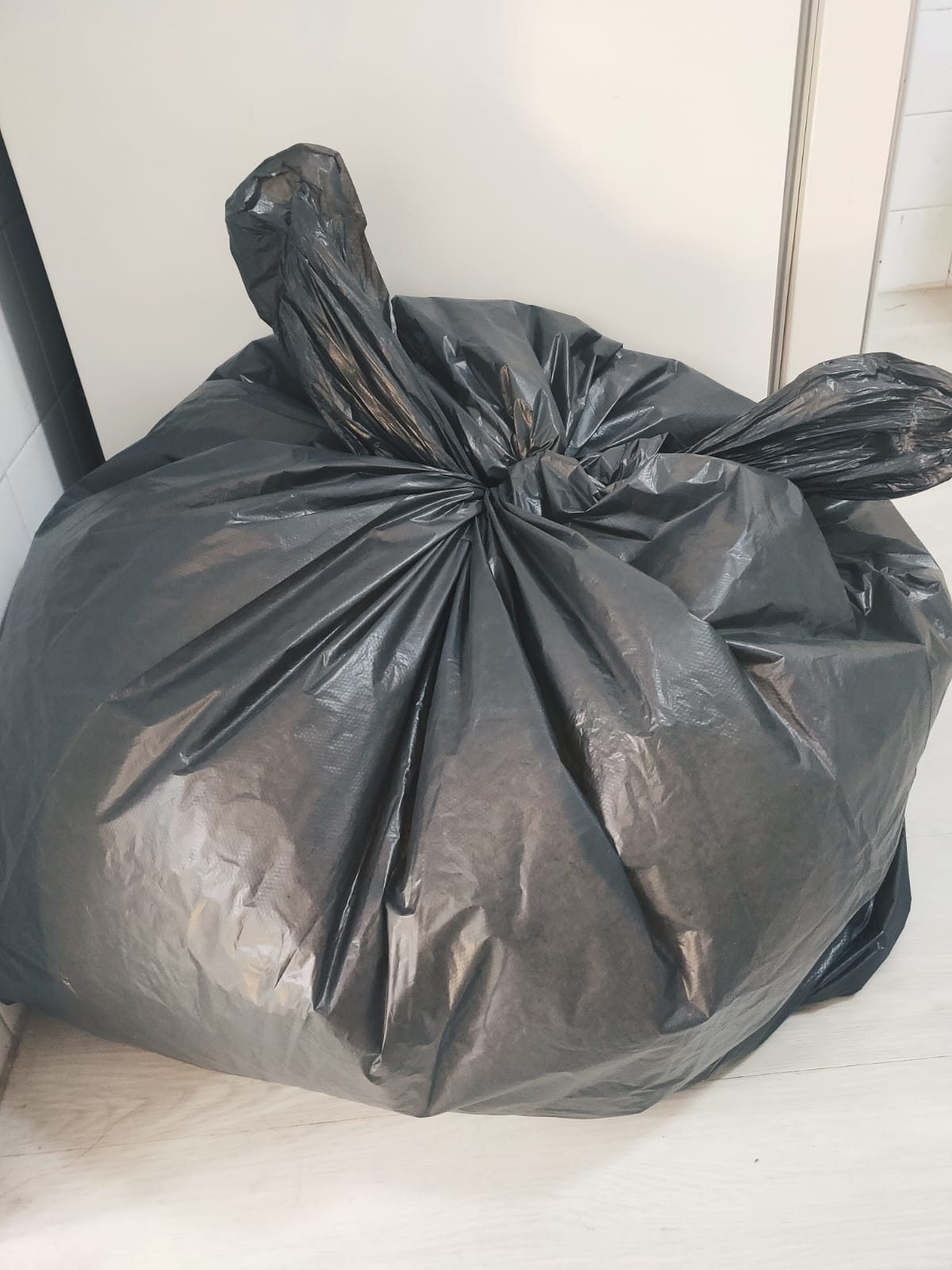 This weighed heavier than my one-year-old niece (yes, I checked).
This weighed heavier than my one-year-old niece (yes, I checked).
Photo by Syahindah Ishak.
Unfortunately, my family isn’t the only one responsible for the extra food wastage the past few months.
It’s quite a pity, especially since the country has put in a lot of effort to tackle food wastage over the past few years.
Growing awareness of food wastage in 2019
A 2019 survey commissioned by the National Environment Agency (NEA) has found that more Singaporeans were becoming conscious about the food waste they produce.
The survey, which involved face-to-face interviews with 1,000 randomly selected household representatives, quizzed people on their eating, shopping, cooking and catering habits.
When it comes to eating out, respondents were found to be more conscious about their food waste.
64 per cent leave no leftovers when eating out, a five per cent increase from the previous survey in 2015.
56 per cent would take away unfinished food when dining out, a 12 per cent increase from 2015.
Around 70 per cent also tried using leftover ingredients from their fridge when cooking.
While shopping, around one-third were open to purchasing fruits or vegetables with slight imperfections, while 38 per cent is open to buying discounted expiring food.
To reduce buying unnecessary items on a whim, 43 per cent also prepare grocery shopping lists before heading to the market.
This consciousness even translated to catering.
Six out of 10 said that they would cater for only the exact number or fewer guests, instead of over-catering.
Ground-up efforts to reduce food waste
This growing awareness might be partially due to the outreach and education activities NEA and non-governmental organisations have been conducting.
Aside from advocating action to reduce food waste in schools, NEA launched a Towards Zero Waste Grant in early 2019 which supported around 270 ground-up initiatives in the form of events and projects.
Some ground-up activities to reduce food waste include charity Food From The Heart, which redistributed surplus food to underprivileged families, as well as Food Bank Singapore's Cooked Food Rescue programme.
And it seems that these initiatives might have paid off.
In 2019, 744,000 tonnes of food waste was generated, a drop from 763,000 in 2018. And in 2017, 810,000 tonnes were produced.
While these numbers are encouraging, the survey also highlighted areas for improvement.
For example, one-quarter of respondents stated that they buy more than needed when grocery shopping mainly due to the concern that household members should have more to eat.
This problem, evidently, has gotten worse since the Covid-19 pandemic began.
So it’s time to do better.
Ways to reduce food wastage
NEA has shared several tips to encourage members of the public to reduce their food waste during this period.
These include:
- Buying and ordering what you can finish.
- Make a shopping list and keep to it.
- Adopt good inventory management (e.g first-in-first-out)
- Carbohydrate foods are usually the most commonly wasted dishes. Order less carbs to reduce food waste.
- Plan a use-it-up meal for leftover food.
For a quick breakdown of everything, you can check out this infographic here:
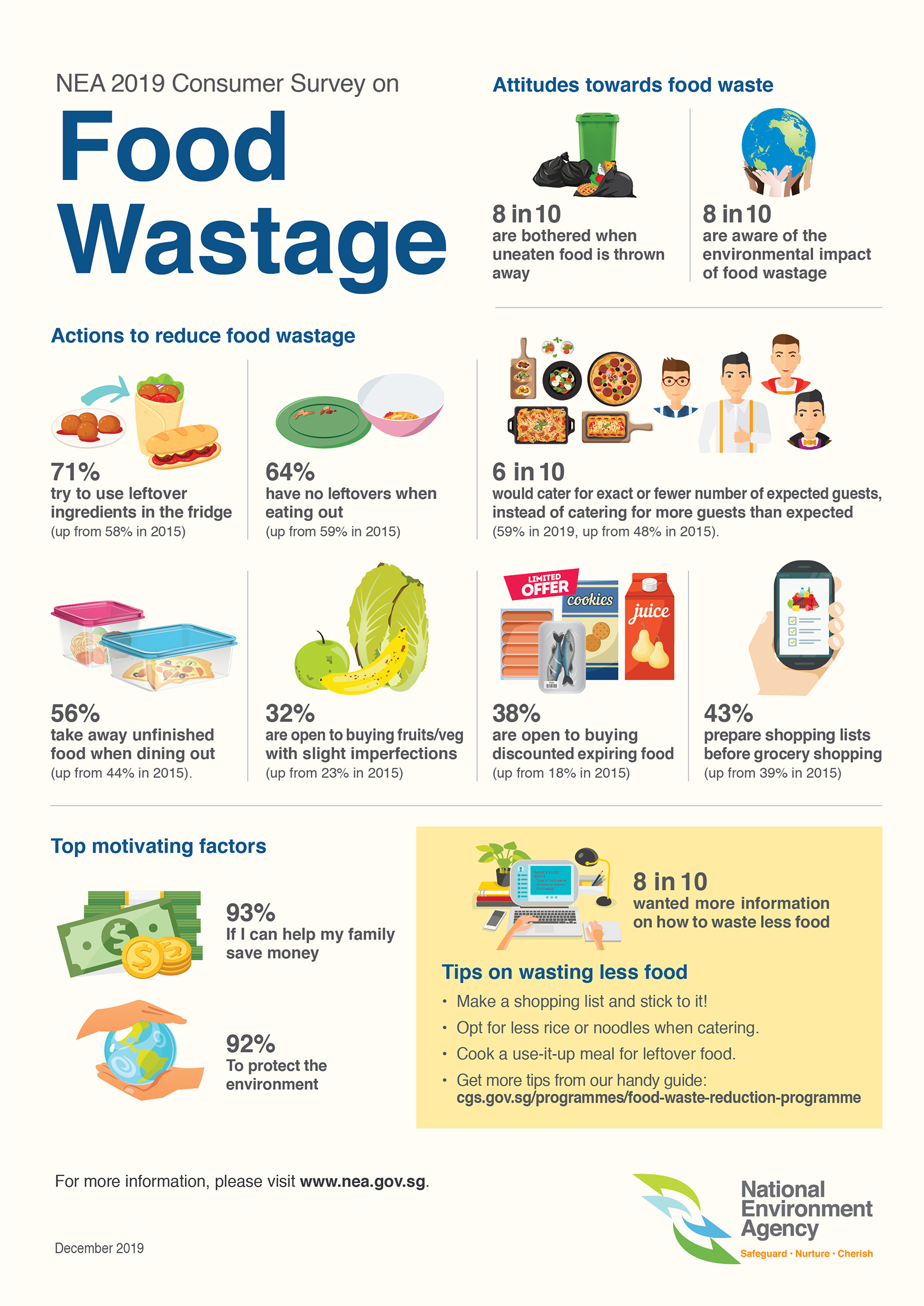 Infographic by NEA.
Infographic by NEA.
Additionally, NEA has launched its annual youth initiative, Youth for the Environment Day (YED). #YED2020
The initiative aims to encourage youths to share their knowledge on zero waste and motivate others to adopt zero waste lifestyle habits.
These include reducing the use of disposables, bringing their own reusable containers for takeaway food and drinks, and avoiding food waste by ordering or buying only what they can finish.
Top images by Syahindah Ishak.This sponsored article by NEA made the writer stop her mother from buying too much groceries again.
If you like what you read, follow us on Facebook, Instagram, Twitter and Telegram to get the latest updates.
